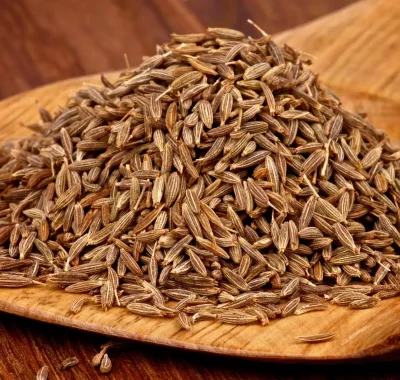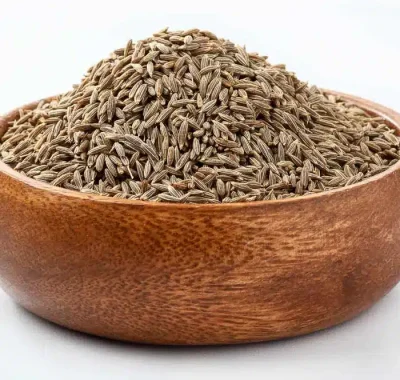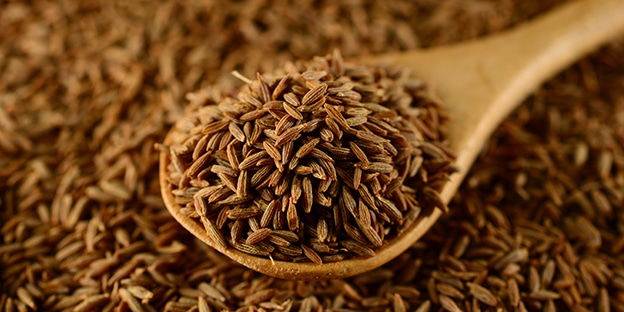Cumin Seeds: A Spice Worth its Salt
Cumin seeds are a versatile spice that have been used for centuries in cuisines around the world. With a warm, earthy flavor and a strong aroma, cumin seeds can be used in spice mixtures, as a seasoning for meats and vegetables, or as a medicinal herb. In this article, we’ll explore the history, nutritional value, culinary uses, medicinal properties, and storage tips of cumin seeds.
- Definition of Cumin Seeds
Cumin seeds are the dried seeds of the Cuminum cyminum plant, which is a member of the parsley family. They are small, elongated, and brown in color, with a distinctive aroma and flavor.
- History and Origin of Cumin Seeds
Cumin seeds are believed to have originated in the eastern Mediterranean region and have been used in cooking for over 5,000 years. They were highly valued by the ancient Greeks and Romans, who used them for their medicinal properties as well as their flavor.
- Uses of Cumin Seeds
Cumin seeds are used in a variety of dishes, from Indian curries to Mexican salsas. They can be used whole or ground, and are often toasted before being used to enhance their flavor.


Nutritional Value of Cumin Seeds
- Vitamins and minerals
Cumin seeds are a good source of vitamins and minerals, including iron, magnesium, and calcium. They also contain antioxidants and anti-inflammatory compounds.
- Health Benefits of Cumin Seeds
Cumin seeds have been shown to have a number of health benefits, including improving digestion, reducing inflammation, and lowering cholesterol levels. They may also have anti-cancer properties.
Culinary Uses of Cumin Seeds
- Use in Spice Mixtures
Cumin seeds are a key ingredient in many spice mixtures, including garam masala and curry powder. They can also be used to flavor meats and vegetables.
- Use in Indian and Middle Eastern Cuisine
Cumin seeds are a staple in Indian and Middle Eastern cuisine, where they are used in a variety of dishes, including curries, stews, and rice dishes.
- Use in Mexican Cuisine
Cumin seeds are also commonly used in Mexican cuisine, where they are used to flavor salsas, chili, and other dishes.

Cumin Seeds as a Medicine
- Traditional Medicine Uses
In traditional medicine, cumin seeds have been used to aid digestion, alleviate pain, treat skin disorders, and improve cognitive function. They have also been used to stimulate lactation in nursing mothers and as a natural remedy for respiratory conditions such as asthma.
- Modern Medical Uses
Modern research has confirmed many of the traditional uses of cumin seeds and also uncovered new potential health benefits. Studies have shown that cumin seeds may have anti-inflammatory, antimicrobial, and antioxidant properties. They have also been found to improve blood sugar control and cholesterol levels in people with diabetes. Additionally, cumin seeds have been studied for their potential anticancer effects.
FAQs
Cumin seeds have a long shelf life of up to three years when stored in a cool, dry place in an airtight container. However, their flavor and aroma may gradually decline over time.
Cumin seeds are the dried fruit of the cumin plant, while ground cumin is made by grinding the seeds into a fine powder. Ground cumin has a more intense flavor and aroma than whole cumin seeds and is often used in spice blends and curry powders.
Yes, cumin seeds have been traditionally used to aid digestion and alleviate digestive issues such as bloating, gas, and indigestion. Cumin contains compounds that stimulate the secretion of digestive enzymes and increase the motility of the gastrointestinal tract.
While cumin seeds are generally safe for consumption during pregnancy, it is recommended to consult with a healthcare provider before using any herbal remedies or supplements during pregnancy.
Yes, cumin seeds have antioxidant and anti-inflammatory properties that may help improve skin health. They can be used topically as a paste or mixed with other ingredients in skincare products to soothe and nourish the skin.
In conclusion, cumin seeds have a wide range of traditional and modern medicinal uses. They have been used for centuries in traditional medicine to aid digestion, treat respiratory ailments, and promote overall wellness. In modern medicine, cumin seeds have been found to have anti-inflammatory, antimicrobial, and antioxidant properties that may help prevent and treat various health conditions. Additionally, cumin seeds can be used in culinary applications to add flavor and aroma to dishes. When consumed in moderation, cumin seeds are generally safe for most people.
Specification
| Product | Cumin Seeds (Singapore) |
| Origin | India |
| Type | Machine Cleaned/ Sorted Cleaned/ Extra Bold |
| Purityh | 99% |
| Extraneous Matter (m/m) | 1.0 % Max. |
| Insect Damaged, Discolored, Weevil led, Immature Seeds | 1 % Max. |
| Excreta Mammalian(By Mg./Lb) | 3 Mg/Lb Max. |
| Excreta Other(By Mg./Lb) | 5 Mg/Lb Max. |
| Mold ( ByWgt.) | 1 % Max. |
| Moisture | 12.0 % Max. |
| Total Ash (m/m) | 9.5 % Max. |
| Acid Insoluble Ash (m/m) | 1.5 % Max. |
| Volatile Oil (ml/100 gm) | 1.0 % Mm. |
| Non-volatile Volatile General ether extract (m/m) | 8.0 mm |
Tasty & Quality Approved Agricultural Products
are Available Here!
We supply and export great-quality Bold Peanuts, Java Peanuts, TJ Peanuts, Fresh Red Onion, White Garlic, Yellow Maize, Dry Red Chill and In Shell Peanuts with 100% customer satisfaction all over the world.

